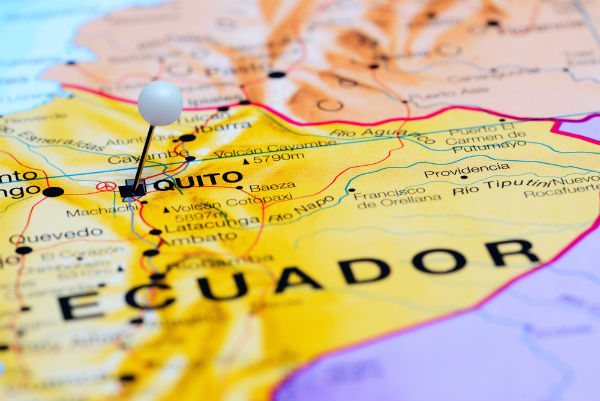Spanish Club Prepares as Annual Trip Approaches

Credit to Shutterstock.com
Published: April 14, 2016
The Spanish Club is going on their annual trip. This time, their trip is to Ecuador. In past years, the club members have gone to Costa Rica. The club will be going June 12-20 in 2017.
The club will first start off in a city called Quito, the capital city of Ecuador. After arriving in Quito, the Spanish club will adventure to Yunguilla. Yunguilla is a sustainable development community in the cloud forest. The club will take a drive through the Amazon Basin and boat up the Napo River to Minga Lodge.
“I’m most excited about finally travelling to a Spanish speaking country that is in a different continent and that isn’t Mexico,” Spanish club president Alyssa Gill said.
Service projects will take place in the Amazon Basin. In the morning, students will begin their service project in a nearby village where they will focus on education, clean water and agriculture. After the morning session, students will get to experience activities pertaining to the Spanish culture. Later in the evening, the club will come together as a group to discuss how the day was and how it connected to global issues.
The club will move further south to a city called Baños de Agua Santa meaning the gateway to the Amazon. The students will get to become one with nature while seeing the 60 waterfalls that make Baños a popular attraction. Finally, the kids will make their way back to Quito.
“I think I really like the trip because it will give the students an opportunity to see a life in a different country and a less fortunate country as well,” club sponsor Brian Santos said.
Before leaving Ecuador, the kids will go to Otavalo. The students will get some leisure time to look at local shops and get to make their own ponchos taught by a local family. The whole point of the trip is to take part in workshops and help the community, also to connect with the locals and experience their culture. All of these activities will be led by a field director the club will be assigned with.
“They are really educational and a way for students to learn in a fun way. It’s real world practice rather than sitting in a classroom just talking about it, and you also get to experience the culture firsthand,” senior member Theresa Blase said.








![2025 Snowcoming Dance [Photo Gallery]](https://FHNtoday.com/wp-content/uploads/2025/03/Snowco2025-Hmartin-3-300x200.jpg)
![Varsity Boys Volleyball Fall Short Against FHC [Photo Gallery]](https://FHNtoday.com/wp-content/uploads/2025/03/IMG_0453-300x200.jpg)
![2025 Snowcoming Pep Assembly [Photo Gallery]](https://FHNtoday.com/wp-content/uploads/2025/03/IMG_9969-300x200.jpg)
![Track And Field Compete In The SCW Invitational [Photo Gallery]](https://FHNtoday.com/wp-content/uploads/2025/04/TrackAndField_4.9.25_Dunham-4-1200x800.jpg)
![JV Boys Baseball Falls To Liberty [Photo Gallery]](https://FHNtoday.com/wp-content/uploads/2025/04/jv-baseball-4.9-agriffin-1356-1200x800.jpg)
![JV Boys Volleyball Takes a Win Against Troy [Photo Gallery]](https://FHNtoday.com/wp-content/uploads/2025/04/AOrozco_boysjvvolleyball_4.08-10-1200x800.jpg)